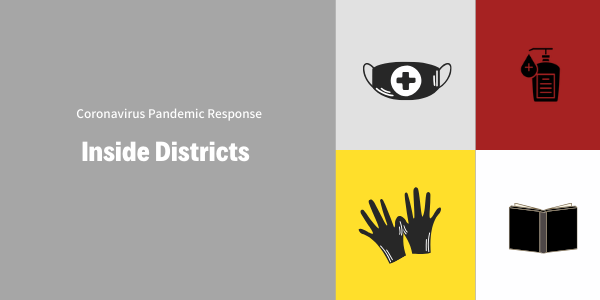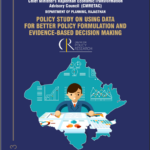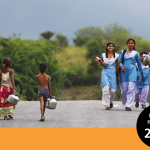
Inside Districts Series: Voice of an Education Officer in Rajasthan
29 April 2020
As the Coronavirus pandemic sweeps through India, districts are being tapped by the government for timely detection and reporting of cases, and prevention. Our ‘Inside Districts’ series will feature interviews of district and Block-level officials, panchayat functionaries and frontline workers to understand their challenges and best practices.
The Accountability Initiative at the Centre for Policy Research is currently operational in five Indian states. For part nine of the series, our field staff spoke with a Panchayat Elementary Education Officer (PEEO) in Baran, Rajasthan.
The interview was originally conducted in Hindi on 10 April 2020, and has been translated.
About the PEEO
The post of the PEEO is specific to Rajasthan, and was created in three phases between 2015-16 and 2017-18, as part of the state’s efforts to improve the quality of education and decentralise governance.
Since 2014, Rajasthan has been consolidating smaller schools with low enrolment with larger schools for efficient management of human and fiscal resources. Further, they launched a new programme for Adarsh School (Ideal School) in all 9,894 Gram Panchayats, either from grades 1-10 or 1-12. PEEOs are principals of these Adarsh schools and their main function is to oversee the delivery of elementary education including monitoring and supervising teachers and school-related activities for elementary schools within a Gram Panchayat*. They also have to manage administrative tasks and maintain records for schools in the panchayat. PEEOs report to Block Elementary Education Officers (BEEOs) who have the dual charge of the education department as well as Samagra Shiksha’s project responsibilities at the Block level.
To learn more about the school consolidation in Rajasthan, read our report.
Q: What are your COVID-19 related tasks?
PEEO: My teachers are going for screening in the village along with the team of ASHAs, Anganwadi Workers (AWWs) and Auxiliary Nurse Mid-Wife (ANMs). We are also identifying people who have arrived in the village from outside, and are sending this report to the Panchayat and Block Chief Medical Officer (BCMO). On 4th April, we received an order instructing us to form committees of five people, and identify people who are showing symptoms of cold and cough.
Q: Are you encountering any challenges?
PEEO: The arrival of people has not halted because most of these people are migrant labourers, and are coming from the cities. We have barricaded the roads, but they travel through the forest. They also hide information about themselves.
Sometimes, when people don’t listen we have to take help of the police.
Q: Have you observed shortages?
PEEO: The workers who are going to various households for screening are at-risk because of the shortage of sanitisers and masks in the market. The ration is being distributed, but I am not sure about the amount. People are also facing challenges because very few ration shops are open.
*Note: In Rajasthan, the earlier post of Cluster Resource Centre Coordinator (CRCC) which was created to provide academic support to teachers in elementary schools has been abolished.





